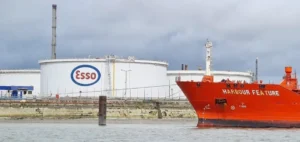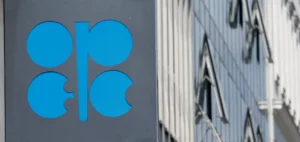Kazakhstan plans to increase production from its Tengiz oil field, one of the country’s largest, in 2025.
This expansion could add up to 260,000 barrels a day, bringing total production to almost 900,000 barrels daily.
Despite this growth, the Kazakh government remains determined to meet its commitments to OPEC+, a global agreement aimed at stabilizing the oil market through production regulations.
Energy Minister Almasadam Satkaliyev recently confirmed that Kazakhstan is prepared to adapt its production plans in line with market conditions.
However, for the time being, no significant change in production forecasts is envisaged.
This position reflects a strategic balance aimed at reconciling international obligations with domestic growth imperatives, notably with the completion of the Tengiz field expansion.
OPEC+ context: obligations and potential adjustments
OPEC+, the Organization of the Petroleum Exporting Countries and its allies, including Kazakhstan, is often under pressure to adjust production in order to maintain price stability on the world market.
For several years, Kazakhstan has occasionally exceeded its production quotas, generating tensions within the group.
However, it has committed to rectifying these excesses through “compensatory cuts”, planned until 2025.
Compliance remains a key issue for OPEC+ members.
Kazakhstan, despite having missed certain targets, is striving to improve its quota compliance.
Last August, a drop in production due to maintenance operations enabled the country to move closer to the levels expected by OPEC+.
The Kazakh government is showing its willingness to adjust to market conditions, while maintaining its active participation in the organization.
Foreign investment and energy prospects
The increase in production at Tengiz is supported by substantial foreign investment, notably through the Tengizchevroil consortium, led by Chevron.
This project, one of the most ambitious in Central Asia, represents a crucial opportunity for Kazakhstan to strengthen its export capabilities while diversifying its partnerships.
At the KIOGE conference in Almaty, Suhail Mazrouei, Minister of Energy of the United Arab Emirates, reaffirmed the UAE’s interest in Kazakhstan’s energy resources.
The UAE is supporting initiatives to improve Kazakhstan’s logistics infrastructure, reducing the country’s dependence on Russian pipelines.
Among the projects mentioned is the construction of a 1 GW wind farm, in partnership with the Emirati company Masdar.
This cooperation underlines the growing importance of investment in energy infrastructure, not only for oil but for other energy sources as well.
Market impact and price outlook
Kazakh Energy Minister Almasadam Satkaliyev expressed optimism about the outlook for oil prices.
Although OPEC+ members have extended voluntary production cuts until December, there are signs of a recovery in demand, particularly in India and the USA.
This recovery could support crude oil prices in the months ahead, despite recent concerns about possible weak demand.
The increase in production at Tengiz in 2025 could have a significant impact on oil markets, depending in particular on global demand.
Kazakhstan will therefore need to continue fine-tuning its strategy to reconcile its production ambitions with market fluctuations.
Meeting OPEC+ commitments while optimizing exports will be crucial to maintaining long-term stability.
With these developments, Kazakhstan is positioning itself as a key player in the global energy landscape.
However, balancing national growth with international commitments remains a strategic priority for the government.






















